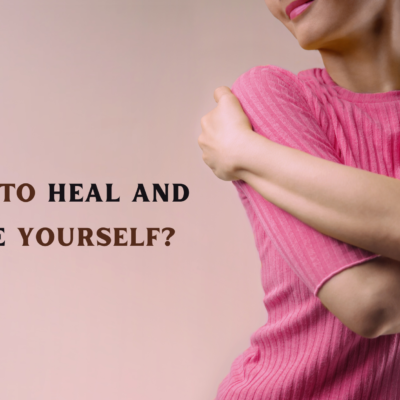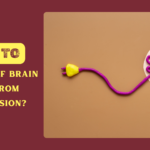How to Heal and Love Yourself: In today’s fast-paced and often demanding world, taking time to heal and love yourself can feel like a luxury. Yet, it is one of the most profound and transformative actions you can take for your mental, emotional, and physical well-being. The path to self-healing and self-love is not about vanity or selfishness, but about nurturing your mind, body, and spirit in a way that allows you to thrive. It is a continuous journey, filled with self-discovery, acceptance, and the cultivation of inner peace.
Also Read:
- How Tracking Spending Habits Can Help You Reach Your Financial Goals?
- How to Stop Over Thinking About Something?
How to Heal and Love Yourself:
Acknowledge Your Pain
Healing starts with acknowledgment. We all carry wounds from the past—whether they are from childhood, relationships, loss, or even our own internal struggles. These wounds may manifest as anxiety, sadness, anger, or self-doubt. The first step in healing is to acknowledge these emotions without judgment.
Instead of suppressing your pain or ignoring it, take time to sit with your feelings. Be honest with yourself about what hurts, why it hurts, and how it affects your life. You might choose to write about your feelings in a journal, talk with a trusted friend, or seek professional help. The act of acknowledging and giving yourself permission to feel is the first step toward healing.
By accepting your pain as part of your life experience, you take away its power over you. You allow yourself to process it, rather than letting it fester in the background. This is a vital component of self-love because it shows that you are worthy of care, attention, and understanding, even in your darkest moments.
Practice Self-Compassion
One of the most crucial aspects of healing and self-love is self-compassion. It is easy to be hard on yourself when you feel like you’re not measuring up or when you make mistakes. But being your own harshest critic only deepens the wounds that you’re trying to heal. Instead, practice self-compassion—the ability to treat yourself with the same kindness, care, and understanding that you would offer a friend.
Start by acknowledging that you are human, and being human means making mistakes, experiencing challenges, and going through periods of difficulty. Speak to yourself kindly and remind yourself that it’s okay to not be perfect. Celebrate your small victories, and recognize the progress you’ve made, even if it doesn’t feel like much.
A compassionate self-talk practice can also be helpful. When negative thoughts arise, consciously replace them with affirming and positive thoughts. Instead of saying, “I’m not good enough,” try saying, “I am enough, just as I am,” or “I am learning and growing every day.”
Forgive Yourself and Let Go of the Past
Healing is impossible without forgiveness, and the first person who deserves your forgiveness is you. Often, we carry guilt, shame, or regret over past mistakes or choices. These emotions create a heavy emotional burden that prevents us from moving forward.
Forgiveness doesn’t mean excusing bad behavior or letting others off the hook. It means choosing to release the negative emotions attached to past events. It’s about setting yourself free from the past and choosing to embrace the present moment.
To begin forgiving yourself, reflect on the mistakes you’ve made and how they have shaped who you are today. Recognize that you did the best you could with the knowledge and resources available to you at the time. Give yourself permission to learn and grow from these experiences, rather than letting them define you.
Forgiveness is a liberating act—it’s about releasing the hold the past has on you, so you can embrace the future with a renewed sense of possibility. Let go of guilt and regret, and make room for self-compassion and growth.
Cultivate Healthy Boundaries
One of the most important steps in loving yourself is learning to set healthy boundaries. Many people struggle with setting limits because they fear disappointing others or being seen as selfish. However, healthy boundaries are essential for preserving your energy, well-being, and emotional health.
Setting boundaries means knowing when to say no, when to take a step back, and when to prioritize yourself. It involves recognizing your limits and honoring them, whether it’s in your relationships, work, or personal life. Healthy boundaries allow you to protect your mental health while still being a compassionate and loving person to those around you.
If you find yourself overcommitting or sacrificing your well-being for others, it’s time to reassess your boundaries. Practice saying no without guilt, and learn to prioritize self-care without feeling selfish. By doing so, you demonstrate self-respect and self-love.
Nurture Your Body and Mind
Your body and mind are deeply interconnected, and nurturing both is a vital aspect of self-love. When you care for your physical health, you’re also investing in your emotional and mental well-being.
Start by incorporating regular physical activity into your routine. Exercise not only helps to improve your physical health but also releases endorphins, which are known to improve mood and reduce stress. Whether it’s yoga, walking, dancing, or strength training, find an activity that you enjoy and that feels good for your body.
Proper nutrition is also essential for self-love. Fuel your body with nourishing foods that promote vitality and well-being. Stay hydrated and pay attention to what your body needs to feel energized and strong.
In addition to physical self-care, mental well-being is just as important. Take time for mindfulness practices such as meditation, deep breathing, or journaling. These practices help you stay grounded, reduce stress, and improve your emotional resilience.
Lastly, make time for rest. Your body and mind need time to rejuvenate, so ensure you’re getting enough sleep and taking breaks when needed. Rest is not a luxury; it’s a necessity for your overall health and healing.
Embrace Self-Acceptance
Self-love cannot flourish without self-acceptance. Embrace who you are—flaws, quirks, and all. Stop comparing yourself to others and let go of the idea that you must be perfect in order to be worthy of love and happiness.
Remember, everyone has strengths and weaknesses, and no one’s life is without struggle. Embrace your uniqueness and honor what makes you different. The more you accept yourself, the more you will attract love and respect from others.
Self-acceptance means recognizing that you are worthy of love, care, and respect, just as you are. It’s about celebrating your individuality and understanding that you don’t need to change to be loved.
Seek Support When Needed
Healing and loving yourself doesn’t mean you have to do it alone. Seek support from trusted friends, family, or a therapist. Sometimes, talking to someone who understands can provide the clarity and encouragement you need to move forward.
Building a supportive network of people who care about you is a key part of your healing journey. Surround yourself with individuals who uplift and empower you, and let go of toxic relationships that drain your energy.
At The End
Healing and self-love are ongoing processes. It’s not something that happens overnight, but rather a continuous journey of self-discovery, growth, and compassion. By acknowledging your pain, practicing self-compassion, forgiving yourself, setting healthy boundaries, nurturing your body and mind, and embracing self-acceptance, you can begin to heal and cultivate a deeper love for yourself.
Remember, you are worthy of love, happiness, and peace—just as you are. Embrace the journey with patience, kindness, and an open heart. Healing is a lifelong process, but it’s one that will empower you to live a more fulfilled and authentic life.








